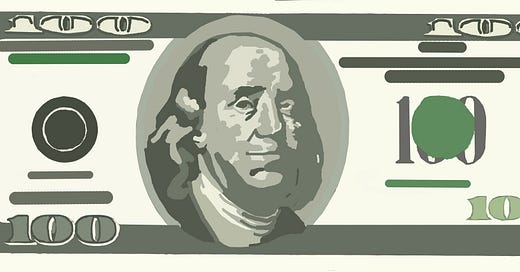TL;DR
Money is a tool we use to do three main tasks in our society:
Account for things
Store value
Exchange between things
There are different types of money, like the US Dollar and Bitcoin, that work differently but fundamentally provide the same key services for consumers and economies.
Some money works better than others. The more people, businesses, and i…
Keep reading with a 7-day free trial
Subscribe to Julianne's Newsletter to keep reading this post and get 7 days of free access to the full post archives.



